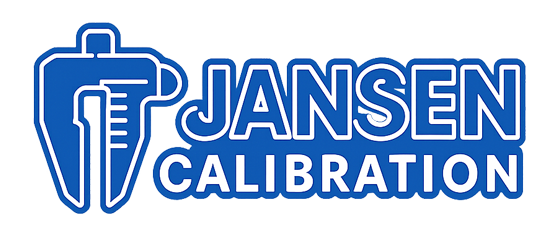No products in the cart.

Originally published: May 9, 2019
Last updated: July 2025 — Updated to reflect modern insulation testing standards, digital megohmmeter technology, and industry best practices in 2025.
🔄 Updates for 2025: What’s New in Megohmmeter Technology
In 2025, insulation testing continues to evolve with a strong focus on safety, automation, and digital integration. Modern insulation testers now offer:
Digital logging with wireless transfer to smartphones or the cloud (e.g., Fluke Connect™ or Hioki’s GENNECT app)
Ramp and step voltage testing, aligned with IEC 60060 and IEEE 43 guidelines
Polarization Index (PI) and Dielectric Absorption Ratio (DAR) calculations built-in
Enhanced CAT IV safety ratings for high-voltage systems
Touchscreen displays and IP67-rated enclosures for harsh environments
🔧 Preventive Maintenance Note:
Megohmmeters are vital during equipment shutdowns and predictive maintenance cycles. Routine insulation resistance testing can prevent unplanned downtime, particularly in motors, transformers, and cable systems.
📋 For regulated industries (utilities, aerospace, pharmaceuticals), ensure your tester carries a valid ISO 17025 calibration certificate for audit compliance.
🔗 Internal Links to Add:
Insulation testers, also known as megohmmeters, are crucial tools in the world of electrical maintenance. Whether you are working in industrial power systems, data centers, manufacturing plants, or utilities, ensuring insulation integrity helps prevent costly breakdowns, fire hazards, and unscheduled downtime. In this article, we explore the importance of insulation testing, the science behind megohmmeters, and how to choose and use them effectively.
⚡ What is an Insulation Tester (Megohmmeter)?
A megohmmeter is a portable or benchtop device designed to measure the resistance of electrical insulation in motors, cables, switchgear, transformers, and other systems. By applying a high voltage (typically between 250V and 5000V) to the insulation, it detects leakage current that indicates the degree of insulation degradation.
Key Parameters Measured:
Insulation resistance (IR) in megaohms (MΩ or GΩ)
Polarization Index (PI) — a time-based test of insulation health
Dielectric Absorption Ratio (DAR) — detects moisture or contamination
🔗 Related Internal Link: Explore Megohmmeters and Insulation Testers
🏭 Applications in Industrial Maintenance
Insulation testing is a cornerstone of electrical preventive maintenance. Use cases include:
Motors and Generators – Checking windings and insulation degradation over time
Cables and Busbars – Detecting moisture ingress, mechanical damage, or thermal stress
Control Panels and Switchgear – Ensuring clearances and insulators maintain safe resistance levels
Transformers – Validating bushings, windings, and oil-paper systems
Solar and Wind Systems – Confirming insulation in extreme temperature and weather exposure
Regular insulation tests are critical for industries like oil & gas, aerospace, utilities, pharmaceuticals, and data centers.
🔗 Related Article: How to Choose the Right Test Equipment for Industrial Electrical Maintenance
🧪 How Does a Megohmmeter Work?
The instrument applies a high voltage (typically DC) between a conductor and insulation. The resulting leakage current is measured and used to calculate insulation resistance.
The equation used is: R = V / I Where:
R = Resistance (MΩ)
V = Test Voltage (e.g., 500V or 1000V)
I = Leakage current (µA or nA)
Higher resistance means better insulation quality.
🛠️ Top Features to Look For
When selecting a megohmmeter, prioritize these features:
Test Voltage Range: From 250V to 5000V for different equipment classes
Auto PI/DAR Calculations: Helps trend long-term performance
Ramp Testing: Gradual voltage increase for sensitive equipment
Discharge Function: For user safety after testing
Memory Logging: To store results for audits
CAT Safety Rating: For high-energy electrical environments
🔍 Recommended Products
We offer a wide range of insulation testers suitable for field technicians and lab environments:
Fluke 1555 FC KIT W/IR3000 – Ideal for high-voltage assets like transformers and switchgear.
Megger MIT525 VIP Kit – Advanced diagnostics including PI and DAR, with data logging.
Hioki IR4057-20 – Rugged, compact, and great for field service in industrial plants.
All units are shipped with a traceable calibration certificate for audit compliance.
📋 Insulation Testing Standards
Compliance with the following standards is crucial:
IEEE 43 — Testing Insulation Resistance of Rotating Machinery
IEC 60034-1 — Electrical Machines Insulation Requirements
NFPA 70B — Electrical Equipment Maintenance Standards
✅ Conclusion
An insulation tester is more than just another tool—it is your first line of defense against electrical failure and fire hazards. By integrating insulation testing into your maintenance routine, you ensure equipment uptime, safety, and regulatory compliance.
At JansenCalibration.com, we provide expert-approved insulation testers and full calibration services so your measurements are always traceable and trustworthy.
🛒 Browse Our Megohmmeters and Insulation Testers Collection or Contact Us to get assistance in choosing the right tool for your operations.
